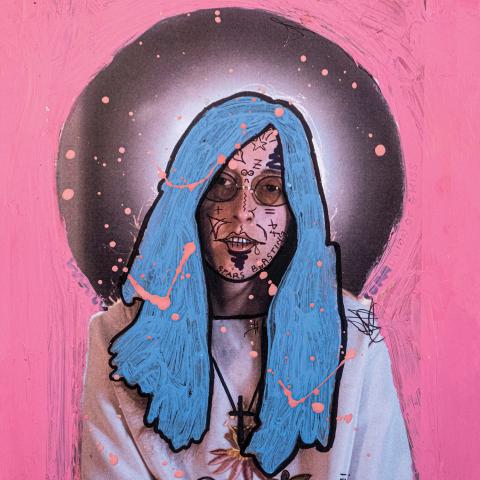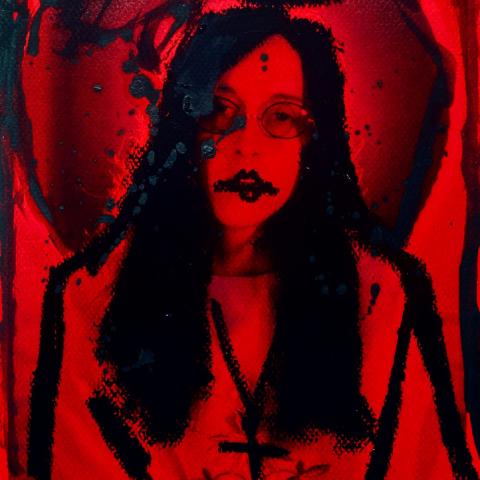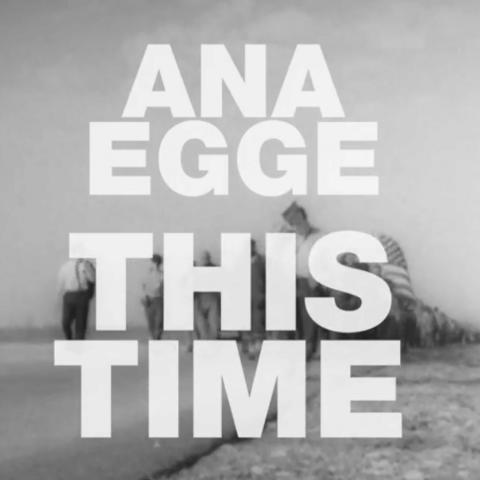Producer Lorenzo Wolff Reimagines the Songs of Judee Sill on "Down Where the Valleys Are Low"

DOWN WHERE THE VALLEYS ARE LOW VIBRANTLY REIMAGINES THE CAPTIVATING MUSIC OF THE UNIQUELY GIFTED, TRAGICALLY TROUBLED SINGER-SONGWRITER JUDEE SILL
Spearheaded by producer-musician Lorenzo Wolff, this project shines a fascinating new light on the songs of this revered pioneering ’70s artist.
Due out March 12 from StorySound Records,
Producer and multi-instrumentalist Lorenzo Wolff first encountered the beguiling music of Judee Sill back in 2010 on a playlist created by tour-mate Henry Wolfe during one of those long, typically dull, drives between gigs. He still recalls how the late, much lamented singer/songwriter’s music stood out “like a briar patch in a line of palm trees.”
Sill’s music stuck with Wolff over the years. He marvels at how her work evoked “a strange, somewhat untrustworthy landscape of shadow figures.” His fascination with Sill’s music led him, in 2019, to create a Sills tribute project, Down Where the Valleys Are Low, in which seven songs are presented in bold interpretations of the original versions. Wolff, who also is a big fan of artist Pieter Bruegel’s detailed, maximalist style, believes Sill’s vibrant, dramatic lyrical and musical language — which he describes as “both psychedelic and medieval, like an illuminated manuscript annotated in Day-Glo” — could not only support a more robust, aggressive sonic palette but actually asks for it. The collection is set for release from StorySound Records on March 12th.
To achieve this expansive approach, Wolff utilized different lead singers for each song, resulting in each track being distinctive yet staying connected to the others. Wolff also feels like these reimagined renditions remain connected to Sill’s vision. “The more I learned about Sill, the clearer the chasm between the artist and her art became,” Wolff explains. “Her life was not only too short, but often nasty and brutish, while her music was pristine, elevated onto an altogether higher plane … [and her songs] were like a gymnasium she’d built for herself to exorcise and exercise her demons.”
Judee Sill was David Geffen’s first signing to his Asylum label; however, she never found the mainstream success that other Asylum acts — Linda Ronstadt, Jackson Browne, Joni Mitchell, The Eagles, or Tom Waits — achieved. The California singer/songwriter only put out two proper albums in the ’70s (her 1971 eponymous debut and 1973’s Heart Food). Sadly, Sill, who was a longtime drug abuser, died from an overdose at the age of 35 in 1979. Tracks recorded in 1974 at Michael Nesmith’s studio for her unreleased third album were later mixed by Sonic Youth producer Jim O’Rourke, and released in 2005 as Songs of Rapture and Redemption.
Today, Judee Sill remains a name that terms like “little-known” and “overlooked” are typically attached to, but those who know her music hold an intense adulation for her. XTC co-founder Andy Partridge described her songs as being “like little tiny symphonies with beautiful chord changes I’d never heard anyone use.” Singer/songwriter Shawn Colvin has compared Sill to Brian Wilson, and proclaimed, “she didn’t sound like anybody else … streetwise and yet … religious.” Sleater-Kinney’s Carrie Brownstein, another obsessed fan, wonderfully summarized Sill’s multi-layered music when she wrote that “her songs are psychological labyrinths, twisting and searching; they are religious and mythical explorations that touch on pain, wonder, and joy. The happy/sad quality is both elating and heartbreaking.”
These celestial/earthbound dichotomies in Sill’s music were things Wolff sought to clarify and magnify on Down Where the Valleys Are Low. While Sillʼs songs have been described as being otherworldly, Wolff feels her recordings suggest a person who had a lifetime of suffering and abuse (and self-abuse), but who also recognized that real beauty can be found in some very bleak places. “She didnʼt make music to escape from the reality of her surroundings,” Wolff says. “She was writing songs to understand and celebrate the dark, the scary and the uncertain.”
With this album, Wolff has attempted to separate the mythology from the woman. “I’ve pushed dirtier, more earthbound elements to the forefront, and used Sill’s words and melodies as parts of a portrait illuminating the angry, cruel, beautiful, complicated, dangerous woman that she was,” he reveals, adding: “I like to picture Judee listening to this album and telling me to fuck off.”





